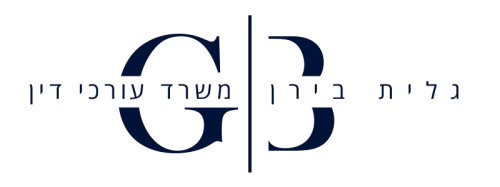Best Project Finance Lawyers in Ramat Gan
Share your needs with us, get contacted by law firms.
Free. Takes 2 min.
List of the best lawyers in Ramat Gan, Israel
About Project Finance Law in Ramat Gan, Israel
Project finance is a method of funding large-scale infrastructure and industrial projects based on the project's projected cash flows rather than the balance sheets of the project sponsors. In Ramat Gan, Israel, project finance is commonly used for ventures such as renewable energy plants, construction projects, transportation infrastructure, and public-private partnerships. The legal framework surrounding project finance involves complex arrangements between lenders, investors, government bodies, and contractors, all requiring careful navigation of local, national, and sometimes international legal standards.
Why You May Need a Lawyer
Engaging in project finance transactions often involves significant financial risk, numerous stakeholders, and detailed regulatory requirements. You may require a lawyer in circumstances such as negotiating financing agreements, drafting or reviewing contracts, navigating local permitting and approval processes, resolving disputes, ensuring regulatory compliance, or structuring public-private partnership deals. Legal professionals can help you avoid costly mistakes, mitigate risks, and ensure the timely and successful completion of your project in Ramat Gan.
Local Laws Overview
Project finance in Ramat Gan is governed by Israeli law, which incorporates elements of contract, administrative, banking, real estate, and environmental law. Key aspects include:
- The Israeli Contract Law, which underpins nearly all project finance agreements
- Local zoning and permitting requirements governed by municipal bylaws and national regulations
- Banking and finance regulations, including the oversight provided by the Bank of Israel
- Public procurement rules for government-supported projects, including the Mandatory Tenders Law
- Environmental legislation, such as the Planning and Building Law and Environmental Protection Law, which may impact project approval and ongoing compliance
- Taxation rules, including VAT and land betterment tax, relevant for both domestic and international investors
- Cross-border financing considerations, including currency controls and foreign investment regulations
Given the complexity and interplay of these legal areas, specialized legal guidance is often critical throughout the project life cycle.
Frequently Asked Questions
What is project finance and how does it differ from other types of financing?
Project finance involves raising funds for a specific project, where repayment is primarily based on the project's future cash flow rather than the assets or creditworthiness of the sponsors.
Which projects in Ramat Gan typically use project finance structures?
Typical projects include real estate developments, energy generation facilities, transportation systems, waste management plants, and other large infrastructure ventures.
Do I need government approval for my project in Ramat Gan?
Most large projects require permits and licenses from municipal or national authorities, especially for construction, land use, and environmental impact.
What legal agreements are commonly involved in project finance?
Key agreements include loan agreements, security documents, shareholder or partnership agreements, supply contracts, construction contracts, and operation or maintenance agreements.
Are foreign investors allowed to participate in projects in Ramat Gan?
Yes. Israel encourages foreign investment, although certain regulatory approvals and reporting requirements may apply to international investors.
How is risk typically allocated in a project finance arrangement?
Risks are contractually allocated among the stakeholders. Lenders may require security interests, and insurance is often used to manage construction, operational, and revenue risks.
What are common challenges in securing project finance in Israel?
Challenges can include regulatory compliance, satisfying banking conditions, achieving financial closure, managing construction risks, and coordinating among multiple parties.
How long does the project financing process take?
The time frame varies widely, from several months to over a year, depending on project complexity, regulatory requirements, and the readiness of supporting documentation.
What happens if the project fails to generate expected revenues?
If revenues fall short, repayment could be impaired. Lenders may enforce security interests or step-in rights, and sponsors can face financial losses depending on contract terms.
Can I refinance a project after it is operational?
Yes, refinancing is common once a project has stable cash flows, allowing borrowers to potentially access better financing terms or release equity.
Additional Resources
The following resources can provide more information or assistance related to project finance in Ramat Gan, Israel:
- Israel Ministry of Finance - for public-private partnership guidelines and support
- Ramat Gan Municipality - for local planning, zoning, and permitting details
- Bank of Israel - for regulatory guidelines related to project funding and banking issues
- Israel Export Institute - for information on cross-border project opportunities and financing
- Israeli Bar Association - for finding qualified project finance lawyers
Next Steps
If you are considering a project in Ramat Gan and need project finance legal advice, begin by:
- Clearly defining the scope and goals of your project
- Gathering all relevant documents and information about the project and stakeholders
- Researching and shortlisting law firms or lawyers with expertise in project finance in Israel
- Scheduling a consultation to discuss your needs, timelines, and any specific concerns
- Ensuring you understand the legal fees and services offered before engaging a lawyer
Taking these steps can help ensure your project in Ramat Gan is legally sound, financially viable, and positioned for long-term success.
Lawzana helps you find the best lawyers and law firms in Ramat Gan through a curated and pre-screened list of qualified legal professionals. Our platform offers rankings and detailed profiles of attorneys and law firms, allowing you to compare based on practice areas, including Project Finance, experience, and client feedback.
Each profile includes a description of the firm's areas of practice, client reviews, team members and partners, year of establishment, spoken languages, office locations, contact information, social media presence, and any published articles or resources. Most firms on our platform speak English and are experienced in both local and international legal matters.
Get a quote from top-rated law firms in Ramat Gan, Israel — quickly, securely, and without unnecessary hassle.
Disclaimer:
The information provided on this page is for general informational purposes only and does not constitute legal advice. While we strive to ensure the accuracy and relevance of the content, legal information may change over time, and interpretations of the law can vary. You should always consult with a qualified legal professional for advice specific to your situation.
We disclaim all liability for actions taken or not taken based on the content of this page. If you believe any information is incorrect or outdated, please contact us, and we will review and update it where appropriate.









